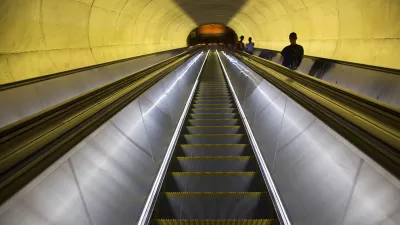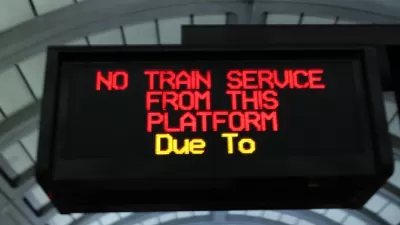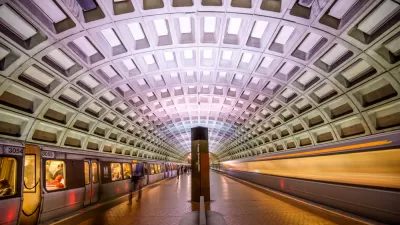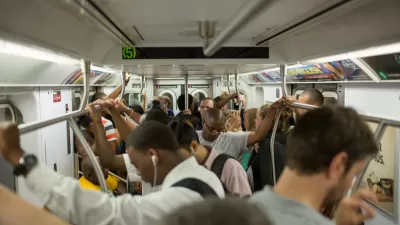For the first time in years, there is talk of expanding service on existing rail lines in the Washington Metropolitan Area Transit Authority (Metro) system.

"Metro officials are seeking to institute a slew of changes in their upcoming budget to win back riders — including charging a flat $2 fare for subway trips taken on weekends, expanding the rush-hour window to include later times on weekday mornings and evenings and increase all trains to their maximum length of eight cars," reports Martine Powers.
The proposed service changes were included in Metro's budget for 2020, which must still be approved by the Metro Board of Directors. The news of the investment in Metro service comes after years of expensive malfunctions, cuts in service, increased fares, and declining ridership.
Funding obstacles must still be overcome to achieve the goals of the proposals, reports Powers. "While there are a number of improvements such as pass discounts and automatic train operations that we can do within the new cap on subsidy growth, the service improvements I am including in this budget will need the region’s support and the Board’s approval," said Metro General Manager Paul J. Wiedefeld in a statement released on Monday. According to Powers, the proposed changes would require more than the increased funding approved earlier this year by Maryland, Virginia, and Washington, D.C.
Specific improvements proposed in the budget include extending Yellow Line Service, running Red Line trains to Glenmont during rush hour, "which would double rush hour service on the northeastern end of the Red Line," according to Powers.
FULL STORY: Metro wants to lower weekend fares and add more evening service to win back riders

Study: Maui’s Plan to Convert Vacation Rentals to Long-Term Housing Could Cause Nearly $1 Billion Economic Loss
The plan would reduce visitor accommodation by 25,% resulting in 1,900 jobs lost.

North Texas Transit Leaders Tout Benefits of TOD for Growing Region
At a summit focused on transit-oriented development, policymakers discussed how North Texas’ expanded light rail system can serve as a tool for economic growth.

Using Old Oil and Gas Wells for Green Energy Storage
Penn State researchers have found that repurposing abandoned oil and gas wells for geothermal-assisted compressed-air energy storage can boost efficiency, reduce environmental risks, and support clean energy and job transitions.

From Blight to Benefit: Early Results From California’s Equitable Cleanup Program
The Equitable Community Revitalization Grant (ECRG) program is reshaping brownfield redevelopment by prioritizing projects in low-income and environmental justice communities, emphasizing equity, transparency, and community benefits.

Planting Relief: Tackling Las Vegas Heat One Tree at a Time
Nevada Plants, a Las Vegas-based nonprofit, is combating the city’s extreme urban heat by giving away trees to residents in underserved neighborhoods, promoting shade, sustainability, and community health.

How Madison’s Tree Planting Efforts Are Growing a Healthier Community
Madison’s annual tree planting initiative is enhancing environmental resilience, public health, and community livability by adding 1,400 carefully selected trees citywide, with strong community and institutional support for urban forestry.
Urban Design for Planners 1: Software Tools
This six-course series explores essential urban design concepts using open source software and equips planners with the tools they need to participate fully in the urban design process.
Planning for Universal Design
Learn the tools for implementing Universal Design in planning regulations.
Ascent Environmental
Borough of Carlisle
Institute for Housing and Urban Development Studies (IHS)
City of Grandview
Harvard GSD Executive Education
Toledo-Lucas County Plan Commissions
Salt Lake City
NYU Wagner Graduate School of Public Service





























